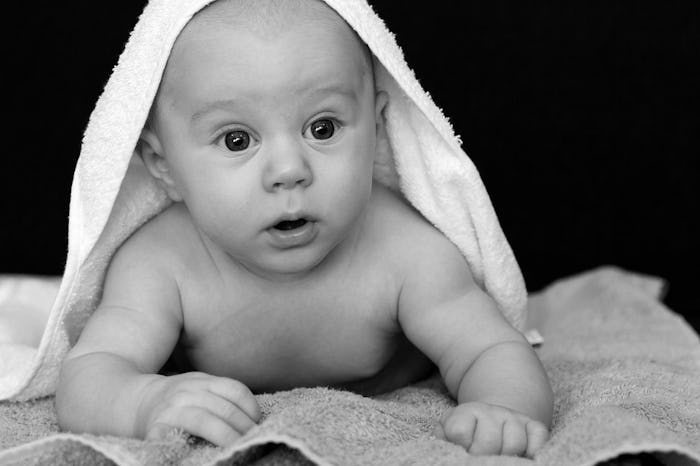Bath time is a common and relaxing routine for parents to start with their newborns. But there can also be some hesitation and worry that comes with bathing a newborn, especially for first-time parents. Generally, there's no reason to worry. There are, however, a few common dangers while bathing a newborn that are good to be aware of and avoid when it's time to head to the tub.
When you first bring your baby home, everything seems very new and delicate. Gentle washings with a washcloth or sponge are the norm until the umbilical cord falls off. Then you're free to start submerging your little one into bath water without fear of the umbilical cord getting wet.
In the beginning, your newborn is totally reliant on you. They can't sit up, hold themselves, or keep control of their head or neck. Bath time during this period is 100 percent hands on for parents. As your baby gets a little older, however, they'll start to sit, shakily, on their own while often splashing, laughing, or playing with toys during bath time. Throughout these stages, there are some fairly common bath time dangers shared below that are good to know about and can ensure parents stay safe and cautious.
1Umbilical Cord Infection
According to Baby Center, it's important to keep the umbilical cord clean and dry to prevent infection. Making sure to keep it dry will ensure it falls off sooner, lowering any chance of infection.
2Water Temperature
According to Baby Centre, babies can get second or even third degree burns from water that's too hot after just seconds of being in the water. It's very important to make sure the bath water is warm but not hot. A good way to prevent getting the water too hot is to start with cold water and switch to warm water as the bath fills. Mixing up the bath water with your hands afterwards is also a great way to make sure there aren't any hotspots.
3Water Depth
The aforementioned Baby Center article also noted that you should keep water depth no more than five inches for babies up to 6 months old. This reduces slipping and submersion risks. Additionally, it's a good idea to wait until the bath is filled to put your baby in. Because the water can rise quicker than expected, it can be dangerous if they baby is already in the tub.
4Bath Seats & Rings
If you turn your back for even just a few seconds, bath seats or rings can be a drowning hazard for babies, according to Parents. Although they're great to help you assist your baby in sitting up in the tub, if the suction cups on the bottom release, they can flip your baby over or trap them under water. Be extra cautions when using these products.
5Shampoos & Bathing Oils
Be careful what you put on your baby's skin. Bathing with antiseptic cleansers is not recommended, according to Medscape. Additionally, the aforementioned Parents article noted that some shampoos and bathing oils contain liquid hydrocarbons. These may cause a pneumonia-like condition, lung damage, or sometimes death if a child gets the substance into their lungs. It's simply a good idea to read the label before purchasing soaps, shampoos, and oils. Even if they're not for your baby, keeping them within reach is often what makes having them dangerous at bath time.
6Accidental Submersion
Sometimes, as parents try to wash their baby, they slip down into the water for a split second. But if you're not paying attention or don't notice, a baby can quickly become submerged for more than a couple seconds. If that happens, it's important to reach out for medical advice. Although not as common, dry or secondary drowning does occur in a small amount of drowning incidents, according to Parents. Dry drowning refers to when a child takes water in through their nose or mouth, and it causes a spasm in their airway. Secondary drowning is when water gets into the lungs and causes inflammation.
7Toys As Choking Or Mold Hazards
According to Baby Gooroo, one of the primary choking hazards for babies is toys, including those found in the tub. Additionally, bath toys also have the ability to pose a mold threat. Babble shared that bath toys are a breeding ground for mold. Although it doesn't generally pose a health threat to kids, those who have immune problems or are under 3 months old could be at risk of getting sick, according to Babble.
